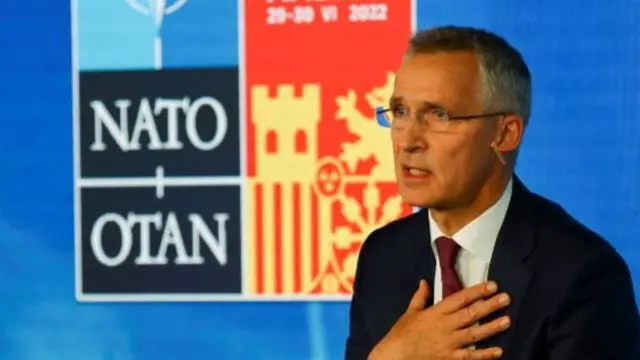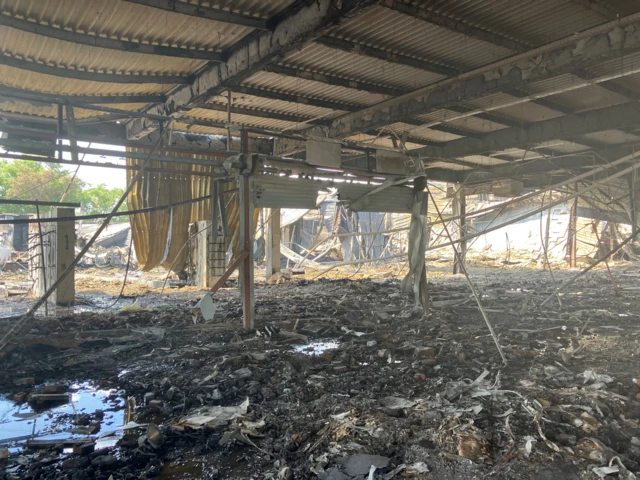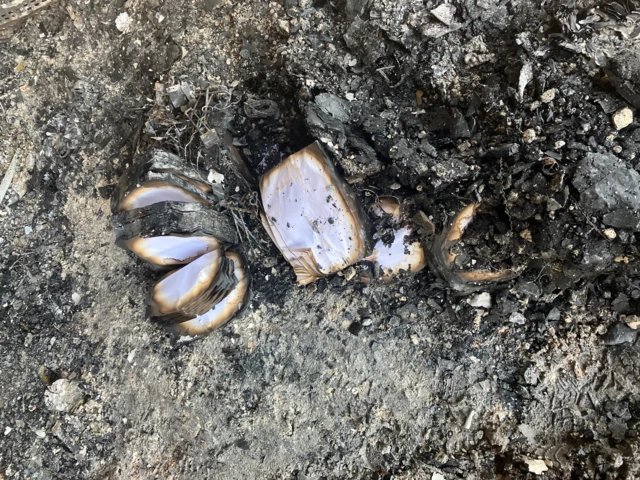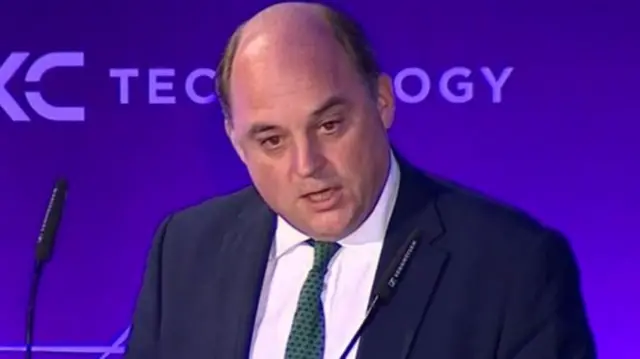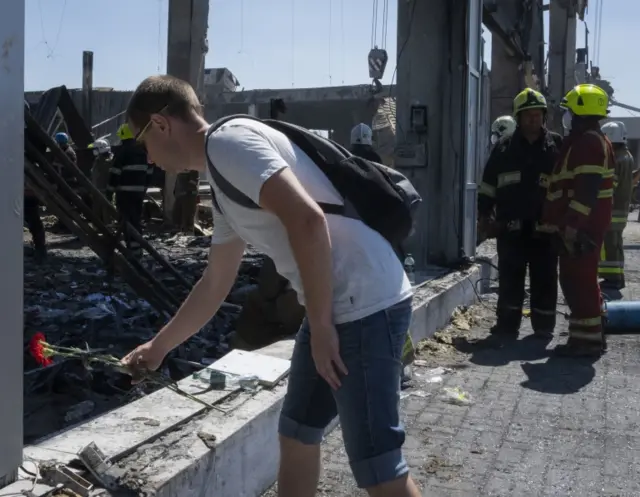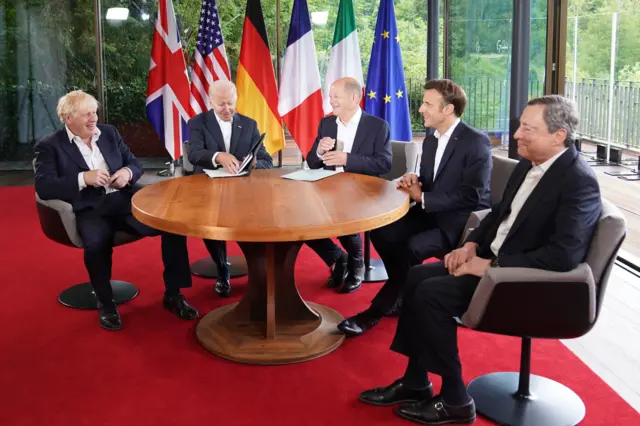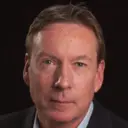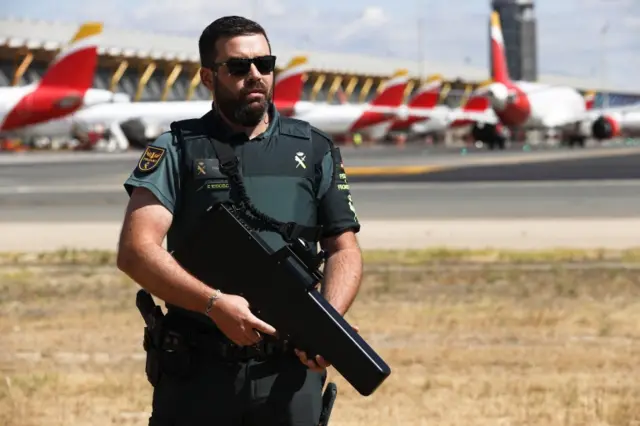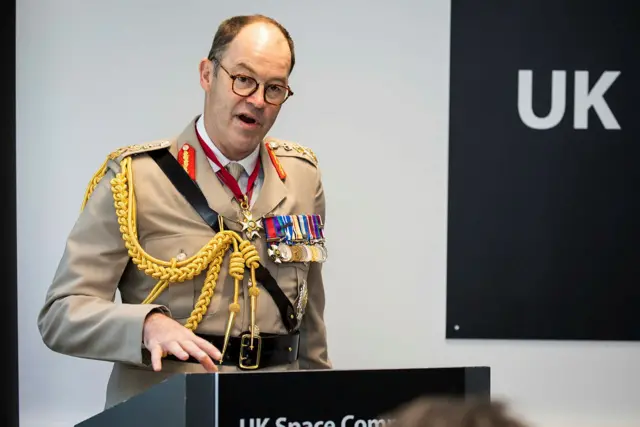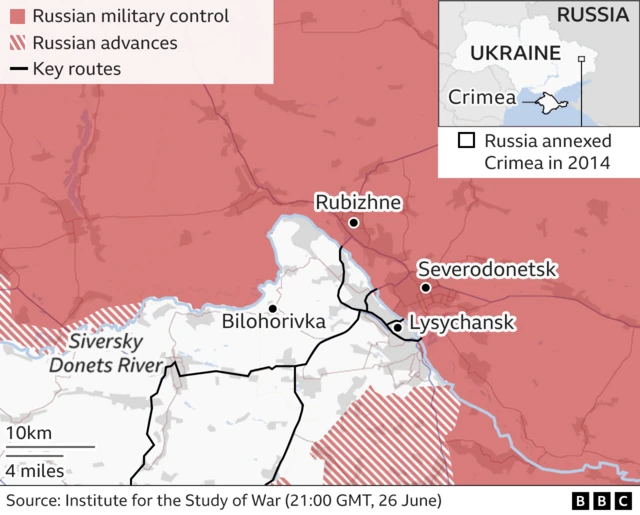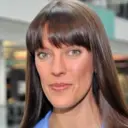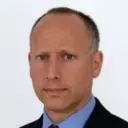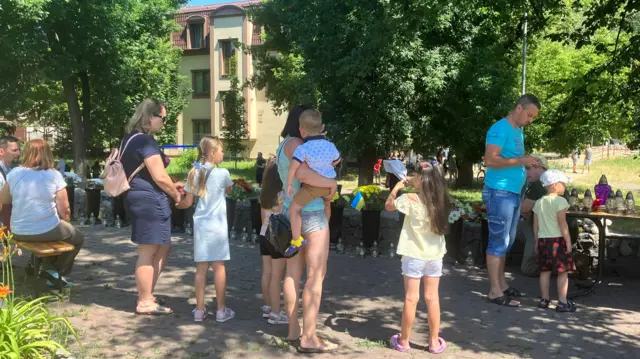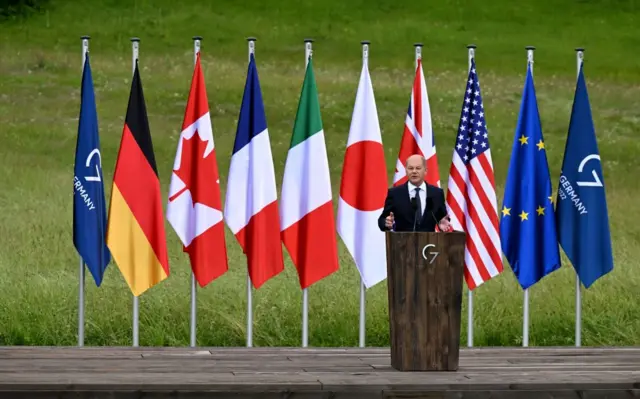'Price worth paying for freedom'published at 15:44 BST 28 June 2022
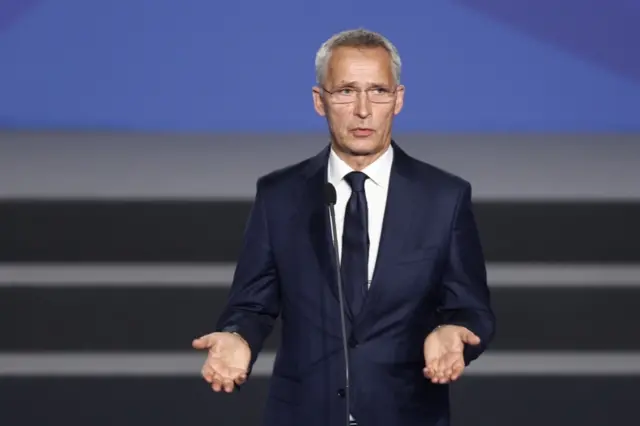 Image source, EPA
Image source, EPAMore now from Jens Stoltenberg.
He says that sanctions imposed on Russia are the price worth paying for freedom.
The Nato chief acknowledged most people in the West were paying higher energy prices as a result but said an even higher price was being paid by Ukrainians.
The world would be more insecure if Putin won, Stoltenberg says, so it is in our interest to support Ukraine.
